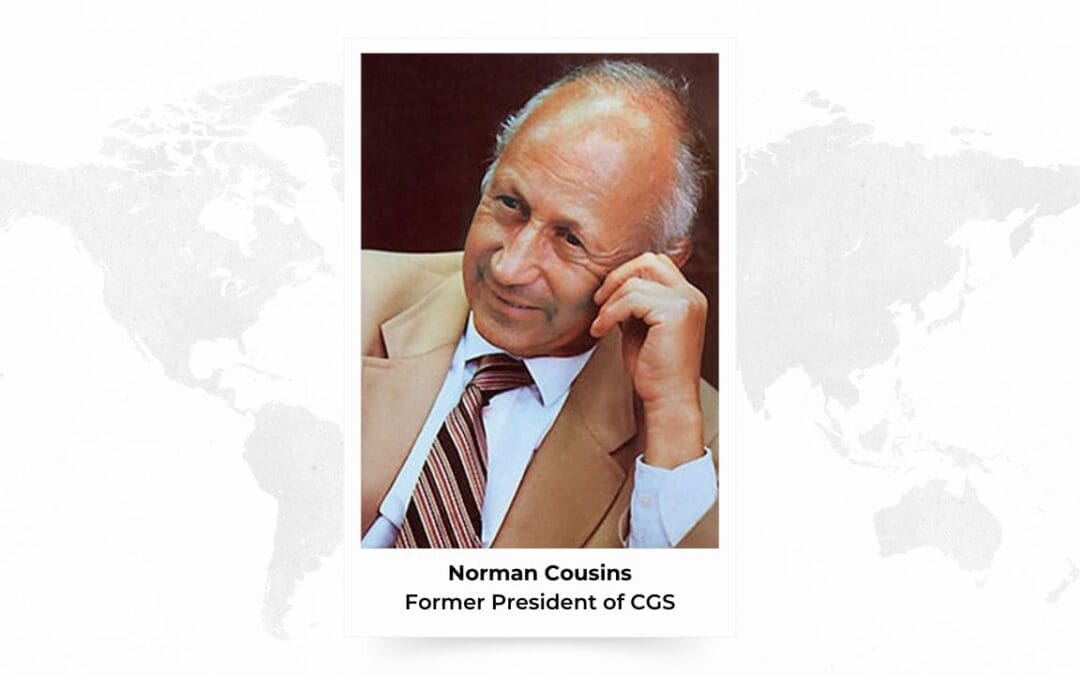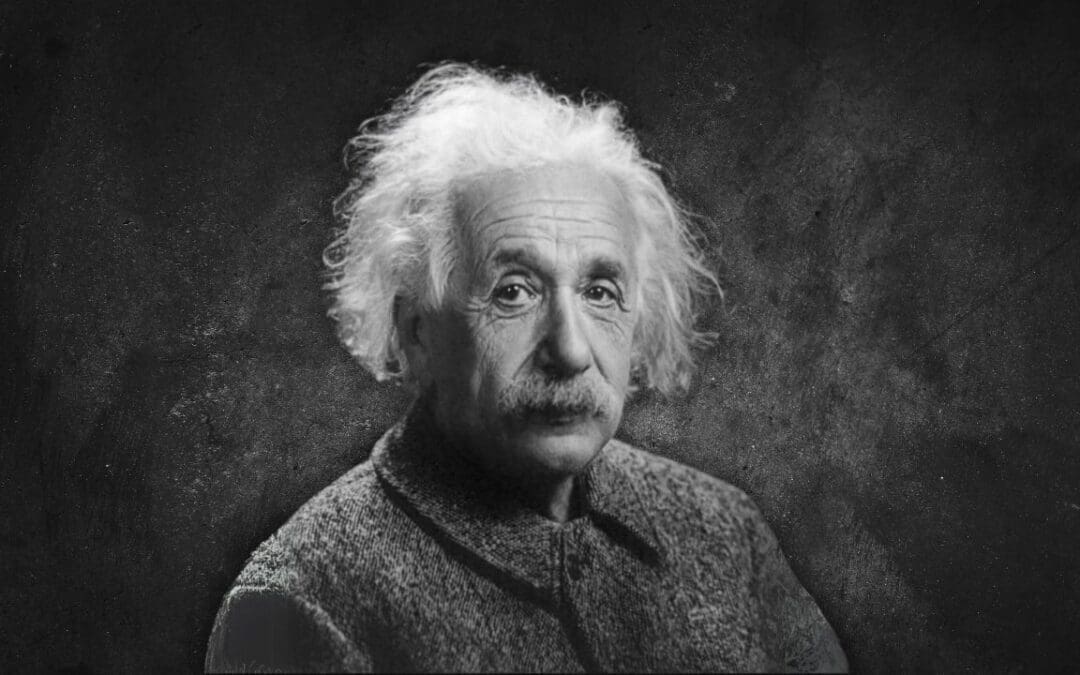
by Sovaida Maani Ewing | Jun 18, 2024 | Disarmament
The threat of nuclear war is at the highest level it has been since the Cuban Missile Crisis in 1962. However, there is a crucial difference: in 1962, most of us were alert to the threat and its existential nature. Today, by contrast, many of us are oblivious to our history or have simply forgotten it, which poses a huge danger: that of sleepwalking our way into a nuclear war with catastrophic consequences for our country and all of humanity.
This danger is exacerbated by three factors.
The first is the proliferation of nuclear arms and the renewed interest on the part of non-nuclear weapons states to acquire nuclear weapons. The war in Gaza has stirred fears that Iran will race for the bomb and join the nuclear weapons’ club. There are good reasons for such a fear: Recent reports quote the International Atomic Energy Agency (IAEA) as saying that Iran is now enriching uranium up to 60 percent, considerably more than the 3.67% permitted under the Joint Comprehensive Plan of Action (JCPOA). The IAEA also believes Iran already possesses enough fissile material to make three nuclear weapons. Moreover, the breakout time (the time required to produce enough fissile material at the 90 percent concentration needed for nuclear weapons, not taking into account the time needed to build a deliverable nuclear warhead) is now zero. The fact that the Iran has prevented the IAEA, the world’s nuclear watchdog, from properly monitoring its nuclear activities since early 2021 only exacerbates these concerns. Added to all this are Iran’s own threats that she will reconsider her nuclear stance if her nuclear facilities are threatened.
These fears have a potentially cascading effect: they are likely to spur other countries in the Middle East, including Saudi Arabia and the UAE, to seek nuclear capabilities of their own starting with civilian capabilities. Indeed, Saudi Prince Mohammad has already stated that were Iran to build nuclear weapons, Saudi would follow suit. Alas, the more nuclear weapons the world has, the greater the chance they will be used intentionally or accidentally.
A similar scenario is playing out further afield in Asia where China’s assertion of territorial claims to disputed islands in the South China Seas like the Paracels and Spratlys and their adjacent waters rich in reserves of natural resources and its claims to the islands of Senkaku/Diaoyu in the East China Sea, coupled with China’s stated desire to absorb Taiwan, are making other countries in the region fearful of China’s power. Japan and South Korea are particularly nervous, especially given the nuclear threat from North Korea. Their fears have been exacerbated by America’s uneven support of Ukraine in the face of Russian territorial aggression. Even though the United States is bound by a trilateral cooperation agreement to defend Japan and the Republic of Korea under its nuclear umbrella they are worried that the support they have been promised may not be forthcoming. These factors taken together are leading both countries to float the idea of acquiring their own nuclear weapons.
The second factor exacerbating the threat of nuclear war is that the guardrails in the form of a treaty regime so painstakingly crafted by the international community designed to reduce the number of nuclear weapons have been crumbling. The Intermediate-Range Nuclear Forces (INF) Treaty collapsed in 2019. The Anti-Ballistic Missile Treaty is defunct; and while the new Strategic Arms Reduction Treaty (START Treaty) — the last Treaty governing nuclear weapons between the U.S. and Russia– is theoretically in effect until 2026, Russia has suspended its participation in the Treaty and has allegedly not complied with her obligations under it since 2023.
The third factor enhancing the threat of nuclear war is the escalating rhetoric of countries like Russia. In early May of this year, Russia sent a clear warning that its arsenal of nuclear weapons was always in a state of combat readiness and announced that it would be holding military drills with troops based near Ukraine to prepare for the possible use of tactical nuclear weapons. This was Russia’s most explicit threat to date that it might use such weapons in Ukraine.
The combination of these three factors should serve to wake us up to the reality facing us before it’s too late. We can no longer afford to be complacent about the dangers of nuclear war, especially as we know, from past experience, that conflicts can escalate rapidly, spin beyond our control and lead to unintended consequences. It’s time we stopped and considered the price humanity would have to pay if we had even a “limited” nuclear war – limited geographically or in time. Experts suggest that using even one percent of our nuclear weapons would have a severe impact on the world’s climate, leading to a nuclear winter and a global famine in which 2 billion people―a quarter of the world’s population―would be at risk of starvation. These are unacceptable costs. Are we really willing to pay them?
As we stand on the precipice of unprecedented horror and untold suffering, we have a choice to make: we can continue our self-destructive dive into the abyss or work assiduously as a community of nations to build a global system of collective security that will ensure global peace and security. Such a system should be grounded in collectively agreed-upon international rules which are enforced even-handedly against any nation that threatens the peace using an international standing force that acts at the behest of, and in service to, the international community.
Image source: Photo courtesy of National Nuclear Security Administration / Nevada Site Office, Public domain, via Wikimedia Commons

by Lawrence Wittner | Jun 18, 2024 | Peace
International law―the recognized rules of behavior among nations based on customary practices and treaties, among them the United Nations Charter and the Universal Declaration of Human Rights―has been agreed upon by large and small nations alike. To implement this law, the nations of the world have established a UN Security Council (to maintain international peace and security) and a variety of international courts, including the UN’s International Court of Justice (which adjudicates disputes between nations and gives advisory opinions on international legal issues) and the International Criminal Court (which prosecutes individuals for crimes of genocide, crimes against humanity, war crimes, and the crime of aggression).
Yet nations continue to defy international law.
In the ongoing Gaza crisis, the Israeli government has failed to uphold international law by rebuffing the calls of international organizations to end its massive slaughter of Palestinian civilians. The U.S. government has facilitated this behavior by vetoing three UN Security Council resolutions calling for a ceasefire, while the Israeli government has ignored an International Court of Justice ruling that it should head off genocide in Gaza by ensuring sufficient humanitarian assistance to the Palestinian population. The Israeli government has also refused to honor an order by the International Court of Justice to halt its offensive in Rafah and denounced the International Criminal Court’s request for arrest warrants for its top officials.
Russia’s military assault upon Ukraine provides another example of flouting international law. Given the UN Charter’s prohibition of the “use of force against the territorial integrity or political independence of any state,” when Russian military forces seized and annexed Crimea and commenced military operations to gobble up eastern Ukraine in early 2014, the issue came before the UN Security Council, where condemnation of Russia’s action was promptly vetoed by Russia. Similarly, in February 2022, when the Russian government commenced a full-scale invasion of Ukraine, Russia again vetoed Security Council action. That March, the International Court of Justice, by an overwhelming vote, ordered Russia to halt its invasion of Ukraine—but, as usual, to no avail.
Unfortunately, these violations of international law are not unusual for, over many decades, numerous nations have ignored the recognized rules of international conduct.
What is lacking is not international law but, rather, its consistent and universal enforcement. For decades, the five permanent members of the UN Security Council (the United States, Russia, China, Britain, and France) have repeatedly used their veto power in that entity to block UN action to maintain international peace and security. Furthermore, nearly two-thirds of the world’s nations do not accept the compulsory jurisdiction of the International Court of Justice, while more than a third of the world’s nations (including some of the largest, such as Russia, the United States, China, and India) have resisted becoming parties to the International Criminal Court. Indeed, responding to the International Criminal Court’s request for arrest warrants for Israeli officials, the U.S. House of Representatives promptly passed legislation to sanction that international organization.
Despite such obstacles, these international organizations have sometimes played very useful roles in resolving international disputes. The UN Security Council has dispatched numerous peacekeeping missions around the world―including 60 alone in the years since the dissolution of the Soviet Union―that have helped defuse crises in conflict-ridden regions.
For its part, the International Court of Justice (ICJ) paved the way for the Central American Peace Accords during the 1980s through its ruling in Nicaragua v United States, while its ruling in the Nuclear Tests case helped bring an end to nuclear weapons testing in the Pacific. In addition, the ICJ’s ruling in Chad v Libya resolved a territorial dispute between these two nations and ended their military conflict.
Although the International Criminal Court has only been in operation since 2002, it has thus far convicted ten individuals of heinous crimes, issued or requested warrants for the arrest of prominent figures charged with war crimes (including Vladimir Putin, Benjamin Netanyahu, and the leaders of Hamas), and conducted or begun investigations of yet other notorious individuals.
But, of course, as demonstrated by the persistence of wars of aggression and massive violations of human rights, enforcing international law remains a major problem in the contemporary world.
Therefore, if the world is to move beyond national impunity―if it is finally to scrap the long and disgraceful tradition among nations of might makes right―it is necessary to empower the world’s major international organizations to enforce the international law that nations have agreed to respect.
This strengthening of global governance is certainly possible.
Although provisions in the UN Charter make outright abolition of the UN Security Council veto very difficult, other means are available for reducing the veto’s baneful effects. In many cases ―including those of the Ukraine and Gaza conflicts―simply invoking Article 27(3) of the UN Charter would be sufficient, for it states that a party to a dispute before the Security Council shall abstain from voting in connection with that dispute. Furthermore, 124 UN nations have already endorsed a proposal for renunciation of the veto when taking action against genocide, crimes against humanity, and mass atrocities. Moreover, the UN General Assembly has occasionally employed “Uniting for Peace” resolutions to take action when the Security Council has failed to do so.
Improving the effectiveness of the international judicial system has also generated attention in recent years. The LAW Not War campaign, championed by organizations dedicated to improving global governance, advocates strengthening the International Court of Justice, principally by increasing the number of nations accepting the compulsory jurisdiction of the Court. Similarly, the Coalition for the International Criminal Court, representing numerous organizations, calls on all nations to ratify the Court’s founding statute and, thereby, “expand the Court’s reach and reduce the impunity gap.”
National impunity is not inevitable, at least if people and governments of the world are willing to take the necessary actions. Are they? Or will they continue talking of a “rules-based international order” while they avoid enforcing the rules?
Image source: International Court of Justice; originally uploaded by Yeu Ninje at en.wikipedia., Public domain, via Wikimedia Commons.

by Lawrence Wittner | May 2, 2024 | Disarmament
What will it take to end the nuclear nightmare that has gripped the world since the atomic bombings of 1945?
For a time, that nightmare seemed to have abated for, in response to massive popular resistance to the prospect of nuclear war, governments turned to signing nuclear arms control and disarmament agreements. Even previously hawkish government officials proclaimed that “a nuclear war cannot be won and must never be fought.”
In recent decades, however, nuclear-armed nations have scrapped nuclear arms control and disarmament treaties, begun the massive upgrading and expansion of their nuclear arsenals, and publicly threatened other nations with nuclear war. The Bulletin of the Atomic Scientists, which has assessed the nuclear situation since 1946, has turned the hands of its “Doomsday Clock” to 90 seconds to midnight, the most dangerous setting in its history.
Why has this renewed flirtation with nuclear Armageddon occurred?
One reason for the nuclear revival is that, in a world of independent, feuding nations, governments turn naturally to arming themselves with the most powerful weapons available and, sometimes, to war. Thus, with the decline of the worldwide nuclear disarmament campaign of the 1980s, governments have felt freer to engage their natural proclivities.
A second, less apparent reason is that the movement and government officials alike have ceased thinking systemically. Or, to put it another way, they have forgotten that the motor force behind nations’ reliance upon nuclear weapons is international anarchy.
In the late 1940s, during the first wave of the popular campaign against the Bomb, the movement recognized that nuclear weapons grew out of the centuries-old conflicts among nations. Consequently, millions of people across the globe, shocked by the atomic bombings of 1945, rallied around the slogan “One World or None.”
In the United States, Norman Cousins, the young editor of the Saturday Review of Literature, sat down on the evening of the destruction of Hiroshima and wrote a lengthy editorial, “Modern Man Is Obsolete.” The “need for world government was clear long before August 6, 1945,” he observed, but the atomic bombing “raised the need to such dimensions that it can no longer be ignored.” Becoming a key writer, speaker, and fundraiser for the cause, Cousins turned the editorial into a book that went through 14 editions, appeared in seven languages, and had a circulation in the United States of seven million copies. He also became a leader in a new, rapidly-growing organization, United World Federalists, which by mid-1949 had 720 chapters and nearly 50,000 members.
Around the world, the atomic bombing provoked a similar response. Atomic scientists, horrified by the prospect of worldwide destruction, published a book titled One World or None, organized international antinuclear campaigns among scientists, and emphasized the need for a global solution to the nuclear problem. Many, like Albert Einstein, became prominent world federalists or, like Robert Oppenheimer, viewed international control of nuclear weapons as a task that necessitated overriding national sovereignty.
The antinuclear uprising of the late 1940s had some impact upon public policy. Major governments, previously enthusiastic about nuclear weapons, grew ambivalent about their development and use. Indeed, the appearance of the Baruch Plan, the world’s first serious nuclear disarmament proposal, owed much to the postwar agitation.
Nevertheless, as the Cold War emerged, the officials of the great powers rejected the new way of thinking about relations among nations championed by Einstein and other activists. Instead of restructuring international relations to cope with the unprecedented peril of the Bomb, they incorporated the Bomb into the traditional framework of international conflict. The result was a nuclear arms race and a growing sense that agitation for transforming the international order was, at best, naïve, or, at worst, subversive.
These narrowed political horizons meant that, when the antinuclear movement revived in the late 1950s, it championed more limited objectives, beginning with a call for ending nuclear testing. And this goal proved attainable, at least in part, because halting atmospheric nuclear testing did not seriously hinder the great powers, which could move tests underground and, thereby, upgrade their nuclear arsenals. The result was the passage of the world’s first nuclear arms control agreement, the Partial Test Ban Treaty of 1963.
Admittedly, ban-the-bomb movements also sprang up in numerous countries. But, although they were sometimes headed by long-time proponents of world government, including Norman Cousins (chair of America’s National Committee for a Sane Nuclear Policy) and Bertrand Russell (president of Britain’s Campaign for Nuclear Disarmament), they, too, focused on weapons rather than on reforming the international system. The result was a welcome surge of nuclear arms control treaties in the late 1960s and early 1970s that quieted the fears of activists and led to the movement’s decline.
When the Cold War revived in the late 1970s and early 1980s, so did an outraged antinuclear campaign. Indeed, this third wave of the nuclear disarmament movement proved the largest and most successful yet, securing substantial decreases in nuclear arsenals and significantly reducing the danger of nuclear war.
Of all the major actors of that era, though, only Mikhail Gorbachev seemed ready to move beyond weapons cutbacks to advocate the development of a new international security system. But with the disintegration of the Soviet Union, Gorbachev was swept from power. And, in recent decades, rising international tensions have swept away the antinuclear campaign’s hard-won gains, as well.
Those gains, though evanescent, were important, for they helped the world to avoid nuclear war while giving it time to press on toward a nuclear weapons-free future.
But this history also suggests that, in the struggle for survival in the nuclear age, confronting the continued anarchy of nations cannot be avoided. Indeed, given the severity of our current international crises and the escalating nuclear menace that they generate, the time has come to revisit the forgotten issue of strengthening the international security system.

by Lawrence Wittner | Mar 2, 2024 | Disarmament
Although the popular new Netflix film, Einstein and the Bomb, purports to tell the story of the great physicist’s relationship to nuclear weapons, it ignores his vital role in rallying the world against nuclear catastrophe.
Aghast at the use of nuclear weapons in August 1945 to obliterate the cities of Hiroshima and Nagasaki, Einstein threw himself into efforts to prevent worldwide nuclear annihilation. In September, responding to a letter from Robert Hutchins, Chancellor of the University of Chicago, about nuclear weapons, Einstein contended that, “as long as nations demand unrestricted sovereignty, we shall undoubtedly be faced with still bigger wars, fought with bigger and technologically more advanced weapons.” Thus, “the most important task of intellectuals is to make this clear to the general public and to emphasize over and over again the need to establish a well-organized world government.” Four days later, he made the same point to an interviewer, insisting that “the only salvation for civilization and the human race lies in the creation of a world government, with security of nations founded upon law.”
Determined to prevent nuclear war, Einstein repeatedly hammered away at the need to replace international anarchy with a federation of nations operating under international law. In October 1945, together with other prominent Americans (among them Senator J. William Fulbright, Supreme Court Justice Owen Roberts, and novelist Thomas Mann), Einstein called for a “Federal Constitution of the World.” That November, he returned to this theme in an interview published in the Atlantic Monthly. “The release of atomic energy has not created a new problem,” he said. “It has merely made more urgent the necessity of solving an existing one. . . . As long as there are sovereign nations possessing great power, war is inevitable.” And war, sooner or later, would become nuclear war.
After the creation, in early 1947, of United World Federalists, the U.S. branch of the growing world federalist movement, Einstein served on its Advisory Board.
Einstein also promoted world federalist ideas through a burgeoning atomic scientists’ movement in which he played a central role. To bring the full significance of the atomic bomb to the public, the newly-formed Federation of American Scientists put together an inexpensive paperback, One World or None, with individual essays by prominent Americans. In his contribution to the book, Einstein wrote that he was “convinced there is only one way out” and this necessitated creating “a supranational organization” to “make it impossible for any country to wage war.” This hard-hitting book, which first appeared in early 1946, sold more than 100,000 copies.
Given Einstein’s fame and his well-publicized efforts to avert a nuclear holocaust, in May 1946 he became chair of the newly-formed Emergency Committee of Atomic Scientists, a fundraising and policymaking arm for the atomic scientists’ movement. In the Committee’s first fund appeal, Einstein warned that “the unleashed power of the atom has changed everything save our modes of thinking, and thus we drift toward unparalleled catastrophe.”
Even so, despite the fact that Einstein, like most members of the early atomic scientists’ movement, saw world government as the best recipe for survival in the nuclear age, there seemed good reason to consider shorter-range objectives. After all, the Cold War was emerging and nations were beginning to formulate nuclear policies. An early Atomic Scientists of Chicago statement, prepared by Eugene Rabinowitch, editor of the Bulletin of the Atomic Scientists, underscored practical considerations. “Since world government is unlikely to be achieved within the short time available before the atomic armaments race will lead to an acute danger of armed conflict,” it noted, “the establishment of international controls must be considered as a problem of immediate urgency.” Consequently, the movement increasingly worked in support of specific nuclear arms control and disarmament measures.
In the context of the heightening Cold War, however, taking even limited steps forward proved impossible. The Russian government sharply rejected the Baruch Plan for international control of atomic energy and, instead, developed its own atomic arsenal. In turn, U.S. President Harry Truman, in February 1950, announced his decision to develop a hydrogen bomb―a weapon a thousand times as powerful as its predecessor. Naturally, the atomic scientists were deeply disturbed by this lurch toward disaster. Appearing on television, Einstein called once more for the creation of a “supra-national” government as the only “way out of the impasse.” Until then, he declared, “annihilation beckons.”
Despite the dashing of his hopes for postwar action to end the nuclear menace, Einstein lent his support over the following years to peace, nuclear disarmament, and world government projects.
The most important of these ventures occurred in 1955, when Bertrand Russell, like Einstein, a proponent of world federation, conceived the idea of issuing a public statement by a small group of the world’s most eminent scientists about the existential peril nuclear weapons brought to modern war. Asked by Russell for his support, Einstein was delighted to sign the statement and did so in one of his last actions before his death that April. In July, Russell presented the statement to a large meeting in London, packed with representatives of the mass communications media. In the shadow of the Bomb, it read, “we have to learn to think in a new way. . . . Shall we . . . choose death because we cannot forget our quarrels? We appeal as human beings to human beings: Remember your humanity, and forget the rest.”
This Russell-Einstein Manifesto, as it became known, helped trigger a remarkable worldwide uprising against nuclear weapons in the late 1950s and early 1960s, culminating in the world’s first significant nuclear arms control measures. Furthermore, in later years, it inspired legions of activists and world leaders. Among them was the Soviet Union’s Mikhail Gorbachev, whose “new thinking,” modeled on the Manifesto, brought a dramatic end to the Cold War and fostered substantial nuclear disarmament.
The Manifesto thus provided an appropriate conclusion to Einstein’s unremitting campaign to save the world from nuclear destruction.
Image courtesy of US Govt. Defense Threat Reduction Agency, Public domain, via Wikimedia Commons

by Lawrence Wittner | Feb 20, 2024 | Climate Justice, Disarmament
For some time, it’s been apparent that the world’s nations are not meeting the growing challenges to human survival.
A key challenge comes from modern war.
Over the centuries, as military weapons have grown ever more destructive, war-related devastation has grown accordingly. World War II was the deadliest military conflict in human history, with an estimated 70-85 million people perishing from the war directly or through war-caused disease, famine, and other indirect factors. Most of the dead were civilians. In addition, many millions of people were wounded―blinded, crippled, driven mad, or otherwise ravaged by the vast carnage. Large portions of the globe had become a charnel house, with the battered survivors left to desperately scavenge for food amid the burnt-out rubble and ruin.
Although some scholars have pointed out that warfare has declined since then, and especially since the end of the Cold War, there was a sharp turnabout in 2022, when the wars in Ethiopia and Ukraine contributed to more battle-related deaths than in any year since 1994. By late 2023, Russia’s military invasion of Ukraine alone had produced an estimated 315,000 killed or injured Russian troops, while the number of casualties among Ukrainian troops and civilians, though unknown, is certainly enormous. Among these and the many other wars currently raging―in Sudan, Myanmar, Ethiopia, the Sahel, and Syria, to name only a few―the recent one in Gaza, with the fastest daily death rate of the 21st century, is particularly alarming, having already led to nearly 30,000 deaths and nearly 70,000 injuries.
And then, of course, there’s nuclear war, which emerged in 1945 with the utter annihilation of Hiroshima and Nagasaki, and which now has the capacity to end virtually all life on earth. Amid public threats from leaders of nuclear-armed nations to launch a nuclear war, the editors of the Bulletin of the Atomic Scientists have set their “Doomsday Clock” at its closest ever to apocalypse.
War―particularly nuclear war―is probably the fastest way to extinguish the human race, but there are other crises underway that, on a longer-range basis, seem likely to accomplish the same task.
The most serious of these crises is environmental. In recent decades, there has been a rapid loss of biodiversity, with the sixth mass extinction of wildlife clearly accelerating. Pollution has grown dramatically. This includes pollution of land and water caused by chemicals and by plastic (which takes 400 years to decompose) and of the air caused by industrial, motor vehicle, and other emissions (leading to an estimated 4.2 to 7 million human deaths annually). Damage to the soil, caused especially by use of toxic chemicals and other pollutants, as well as by deforestation, has become particularly severe. The United Nations has estimated that some 40 percent of the planet’s soil is now degraded.
A key element in the environmental collapse is the growing climate catastrophe, caused primarily by the burning of fossil fuels. Melting icecaps and rising sea levels, unprecedented hurricanes, floods, and wildfires, and ocean acidification are all well underway. Together with unsustainable farming practices, rising temperatures have produced growing food and water scarcity. UN Secretary General Antonio Guterres declared that, unless immediate action is taken, there will be a “global food emergency that could have long term impacts on hundreds of millions of adults and children.” Furthermore, it is estimated that, by 2025, two-thirds of the world’s people might face water shortages. Commenting on the deteriorating climate situation, Guterres declared gloomily in September 2023 that “humanity has opened the gates to hell.”
The rise of rightwing nationalism provides yet another challenge to human survival. In recent years, rightwing political movements―headed by authoritarian demagogues such as Donald Trump (United States), Jair Bolsonaro (Brazil), Vladimir Putin (Russia), Narendra Modi (India), Recep Tayyip Erdogan (Turkey), Marine Le Pen (France), Benjamin Netanyahu (Israel), Viktor Orban (Hungary), and their counterparts in other lands―have transformed the landscape of world politics. Appealing to xenophobia, militarism, racism, and religious prejudice, they have made great strides toward stirring up longstanding hatreds in their ruthless quest for power. A key to their success along these lines has been their call to revive the ostensible glory of their own nations by purging their internal enemies and triumphing over other, ostensibly inferior, countries abroad. Redolent of the fascist movements of the 1930s, this Radical Right approach portends worldwide turmoil, violence, and destruction.
Of course, it might not be too late to head off these developments. After all, in the twentieth century, humanity did manage to defeat the drive of the rightwing maniacs who established fascist regimes and launched vast wars to rule the world. In the aftermath of the chaos and destruction of World War II, humanity did manage to create the United Nations and to extend the range of international law. And, still later, as the planet stood on the brink of nuclear war, humanity did manage to roll back the nuclear menace and, for a time, halt the nuclear arms race and curb the prevalence of war.
Moreover, there are a great many efforts underway―by social movements and some far-sighted governments―to address the contemporary crises. Peace, environmental, and political action movements have flourished and brought forth demands for sweeping changes in public policy. In addition, some social movements, recognizing the global nature of the problems facing humanity, have called for enhanced global governance to cope with the severe threats posed by war, environmental devastation, and violations of human rights. The Summit of the Future on the horizon in September 2024 has been hailed as a “once in a generation” opportunity for meaningful reform of the global governance architecture. This watershed moment could be seized as a chance to correct course and avert disaster for humanity and the planet.
Even so, as the world once again veers toward destruction, it’s clear that it’s getting late―very late―to avert catastrophe.
Image Source: Doomsday Clock சஞ்சீவி சிவகுமார், CC BY-SA 4.0, via Wikimedia Commons

by Sovaida Maani Ewing | Feb 8, 2024 | Peace
Like it or not, our world has become so interconnected and interdependent that events that have hitherto been regarded as regional in nature now threaten our well-being everywhere. The Ukraine war triggered global food and energy crises, global inflation, exacerbated the worldwide refugee crisis, and renewed the specter of a nuclear war. The war in Gaza has added to these woes by sparking reactions that threaten global shipping through the Suez Canal, putting a further dent in our global economy by raising consumer prices. We must act swiftly and effectively now to stem the cancerous spread of violence before we find ourselves engulfed in a global conflagration.
The international community must step up and shoulder a responsibility it has, for too long, abdicated: to maintain and restore peace in the world. We can begin by going beyond mere words and adopting mechanisms to operationalize and implement a principle known as the Responsibility to Protect, adopted unanimously by 193 nations at the UN Summit of world leaders in 2005. It provides that if a government is unable or unwilling to protect its people, it falls to the international community to step in and shoulder that responsibility.
A mechanism that is worth considering along these lines is that of making Gaza an international trust for a limited period of time until it is ready for self-governance. Even if there is no appetite to revive the Trusteeship Council, an organ of the United Nations which was suspended (though not dismantled) in 1994, we can revive and apply its attributes to create this trust as a stepping-stone for peace in the Middle East. We should urge the UN General Assembly to create an ad hoc Trusteeship Council that would act as a time-limited cocoon (say of 5 years) around Gaza, allowing it to heal at all levels until it is able to take up its role as a mature member of the international community of nations. The case of South West Africa’s evolution to becoming Namibia provides us with a useful precedent for setting up such an ad hoc Council and warns us of pitfalls to avoid.
Many benefits flow from this approach: first, Gaza would be under the direct administration and control of the UN, which would appoint an ad hoc Trusteeship Council for Gaza (and possibly parts of the West Bank) composed of a mix of countries from the region (such as Jordan, Egypt, and Saudi Arabia) and beyond (like Canada, Germany, France, the UK and Australia) on condition that they are committed to the well-being of all parties to the conflict and to establishing peace in the region. Having such a Council frees Israel from the burden of administering these territories and affords the Palestinians the space to recover, develop and grow into an independent self-governing entity.
Second, Gaza could be demilitarized, thereby ensuring the security of both its people and its neighbors. Here again, we can turn to the successful experiences of Northern Ireland and East Timor for lessons in how best to achieve this.
Third, an economic recovery and reconstruction plan akin to the Marshall Plan could be developed for Gaza. Moreover, the administering authority should be able to monitor all funds coming into Gaza and ensure that they will be used solely for constructive and peaceful purposes and not diverted for the purchase of weapons or instruments of war that can threaten the peace.
Fourth, a system of education that is rooted in teaching coexistence and peace and is coupled with the provision of training in good governance should be introduced, allowing for a cadre of potential leaders representative of the people of Gaza to emerge.
Last, the UN can arrange for free and fair elections to be held, as it did in Namibia.
It is time to take bold steps to spare our world from the ravages of war and establish a lasting peace.
This article was originally published in PeaceVoice.
Image Credits: Stepping stones across the R.Mole below Box Hill by Jonathan Hutchins, CC BY-SA 2.0, via Wikimedia Commons




































